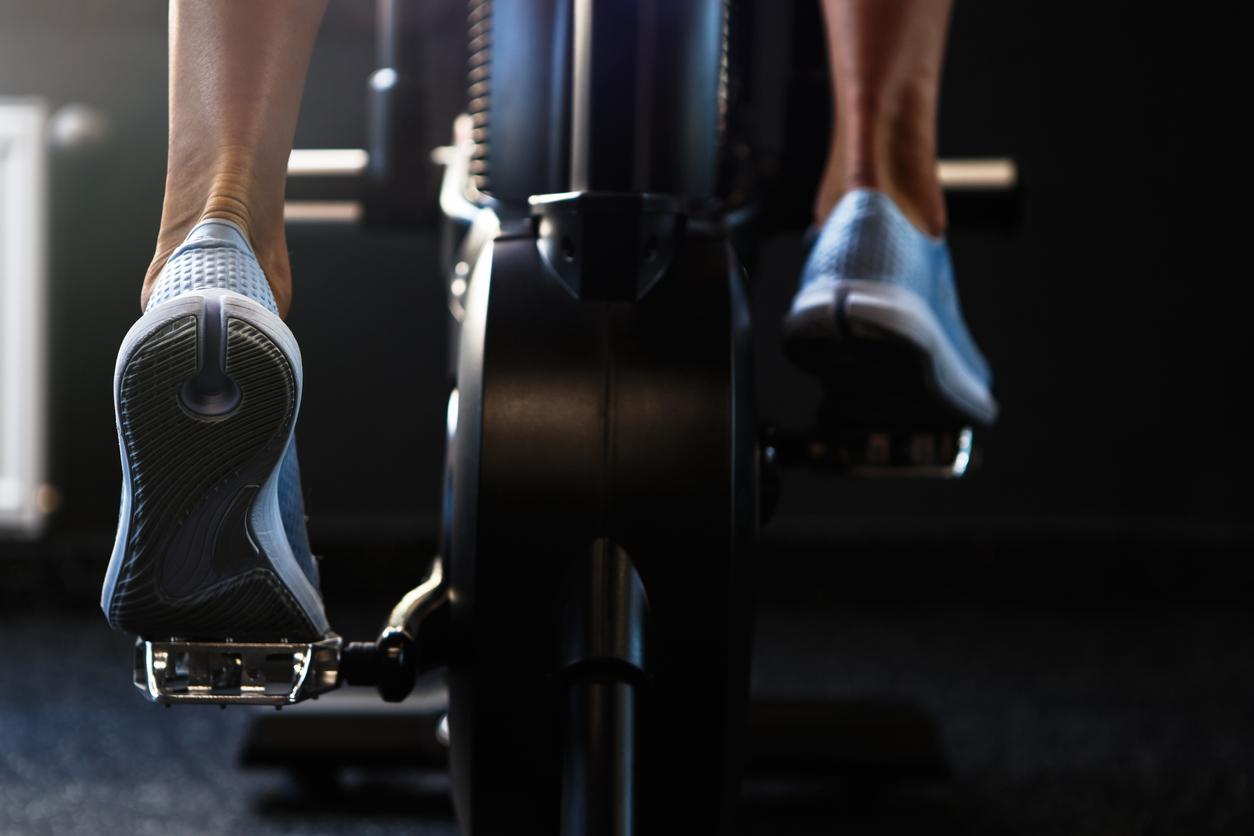Practicing a so-called aerobic sport, such as cycling, reduces inflammation in people with obesity.

- Practicing physical activity, called aerobic, of moderate to vigorous intensity, reduces inflammation linked to obesity.
- Four sessions per week, for a total of 150 minutes, have greater effects on it than taking a weight loss treatment.
- This could help reduce the risk of obesity-related metabolic disease.
Sport is health. According to theWorld Health Organizationpracticing physical activity, for at least 150 minutes per week, is good for “health of the heart, body and mind”. This reduces the risk of cardiovascular disease, cancer, diabetes and even depression. But sport also has beneficial effects on inflammation in the body. Scientists demonstrate this in a study, which will be presented at European Congress on Obesityorganized in Venice, Italy. In people with obesity, moderate to intense aerobic physical activity helps reduce inflammation.
Obesity: inflammation increases the risk of chronic diseases
In a communicatedthe authors of this study specify that the excessive accumulation of fat in adipose tissue (fat cells) leads to “chronic low-grade inflammation, characterized by chronically high levels of harmful compounds called pro-inflammatory cytokines, which contribute to the development of metabolic diseases”. Professor Signe Torekov from the University of Copenhagen in Denmark is the lead author of this work. He points out that previous research has shown that physical exercise helps reduce the risk of obesity-related complications. “New weight loss drugs, such as glucagon-like peptide-1 receptor agonists (GLP-1 RA), originally developed for diabetes, effectively reduce obesity and related disorders, he adds. In this analysis, we wanted to determine whether combining exercise with GLP-1 RA could reduce chronic low-grade inflammation in obese people, a process that underlies many chronic diseases and conditions related to obesity. age.“
Sport, treatment or both: what is the best strategy to reduce obesity-related inflammation?
To find out, he recruited 195 people suffering from obesity. They were divided into different groups: the first took a placebo and kept their exercise habits, the second only did the recommended physical exercise of at least 150 minutes per week, of moderate to intense intensity, the third took treatment with liraglutide, and the last one did the recommended amount of sport and followed the same treatment. “The physical exercise part consisted of two supervised sessions per week of fairly intense exercise on spinning bikes (assessed by heart rate) and participants were encouraged to complete two individual sessions per week, to achieve a minimum of 150 minutes/week of exercise. ‘activity”, indicate the authors. During the study, blood samples were taken to analyze changes in different markers of inflammation. After a year, the patients who did the sports sessions obtained better blood results: the levels of three markers of inflammation fell by 18 to 37%.

Reduction of inflammation: sport is more effective than treatment
“Our results show that exercising according to guideline recommendations was the most effective strategy for reducing chronic low-grade inflammation, explains Professor Signe Torekov. Liraglutide treatment did not reduce inflammation more than placebo, and adding liraglutide to exercise did not reduce inflammation further. These findings highlight the benefits of moderate-to-vigorous intensity physical activity in reducing low-grade inflammation linked to obesity, which could help prevent associated metabolic diseases.”
















